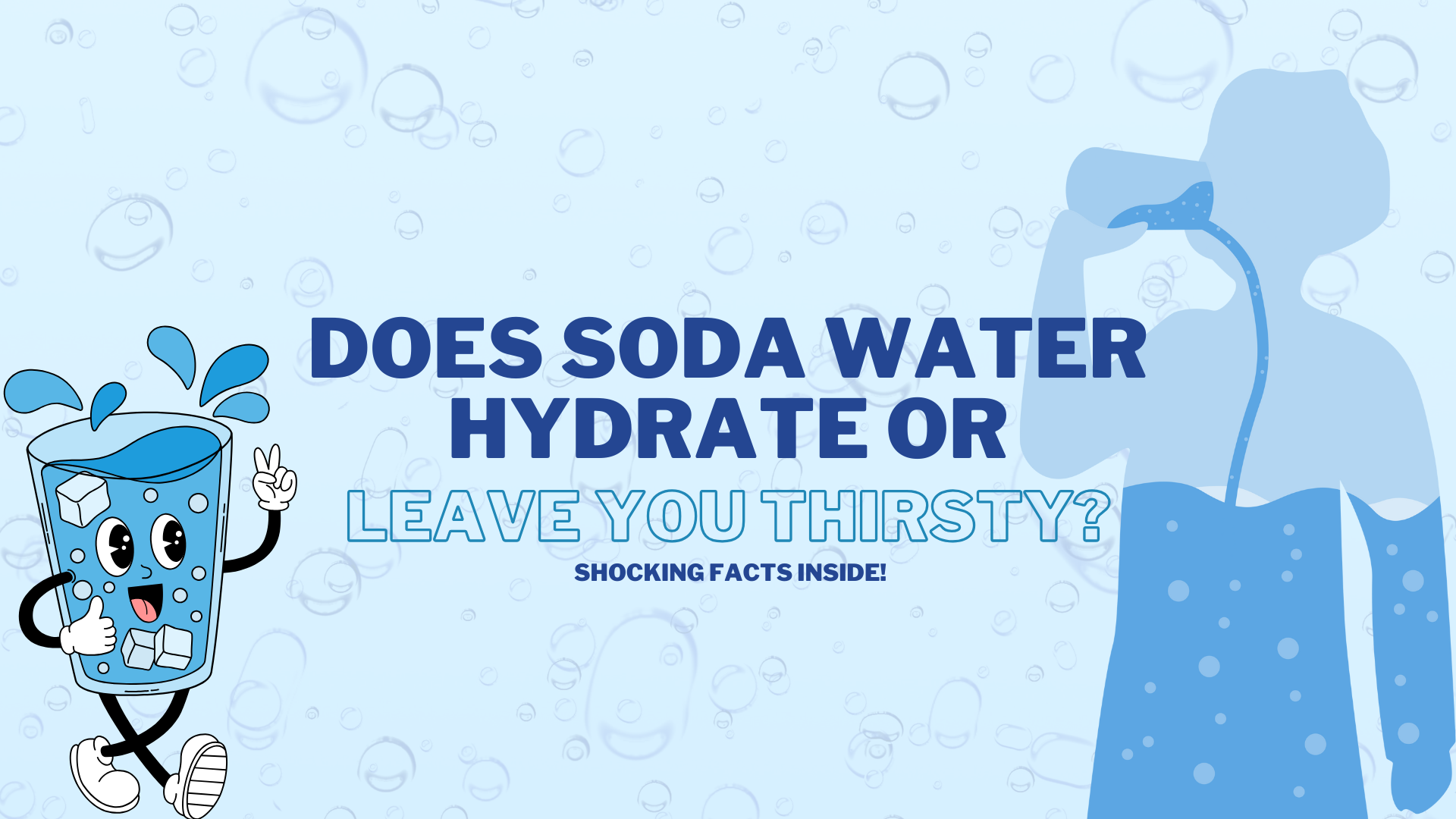
Many people regard soda water as a refreshing alternative to still water, but does soda water hydrate? Understanding hydration is crucial as it impacts everything from energy levels to overall well-being. Exploring the nuances of soda water's hydrating properties in one recent study helps clarify its role in daily fluid intake.
Daily hydration needs vary based on several other factors, including activity level and climate. While still water is typically lauded for its hydration capabilities, sparkling water offers benefits worth examining. Comparing these two types can help determine which might better meet your hydration requirements.
The Ultimate Hydration: Everything You Need to Know!
Hydration is essential for maintaining the body's fluid balance and supporting various bodily functions. Still water and carbonated water, and various beverages such as sparkling water, provide similar benefits.
Research confirms that carbonation in drinks has little effect on hydration effectiveness, meaning most people using carbonated beverages, including carbonated mineral waters, hydrate as efficiently as non-carbonated water.
Are You Drinking Enough? What Science Reveals!
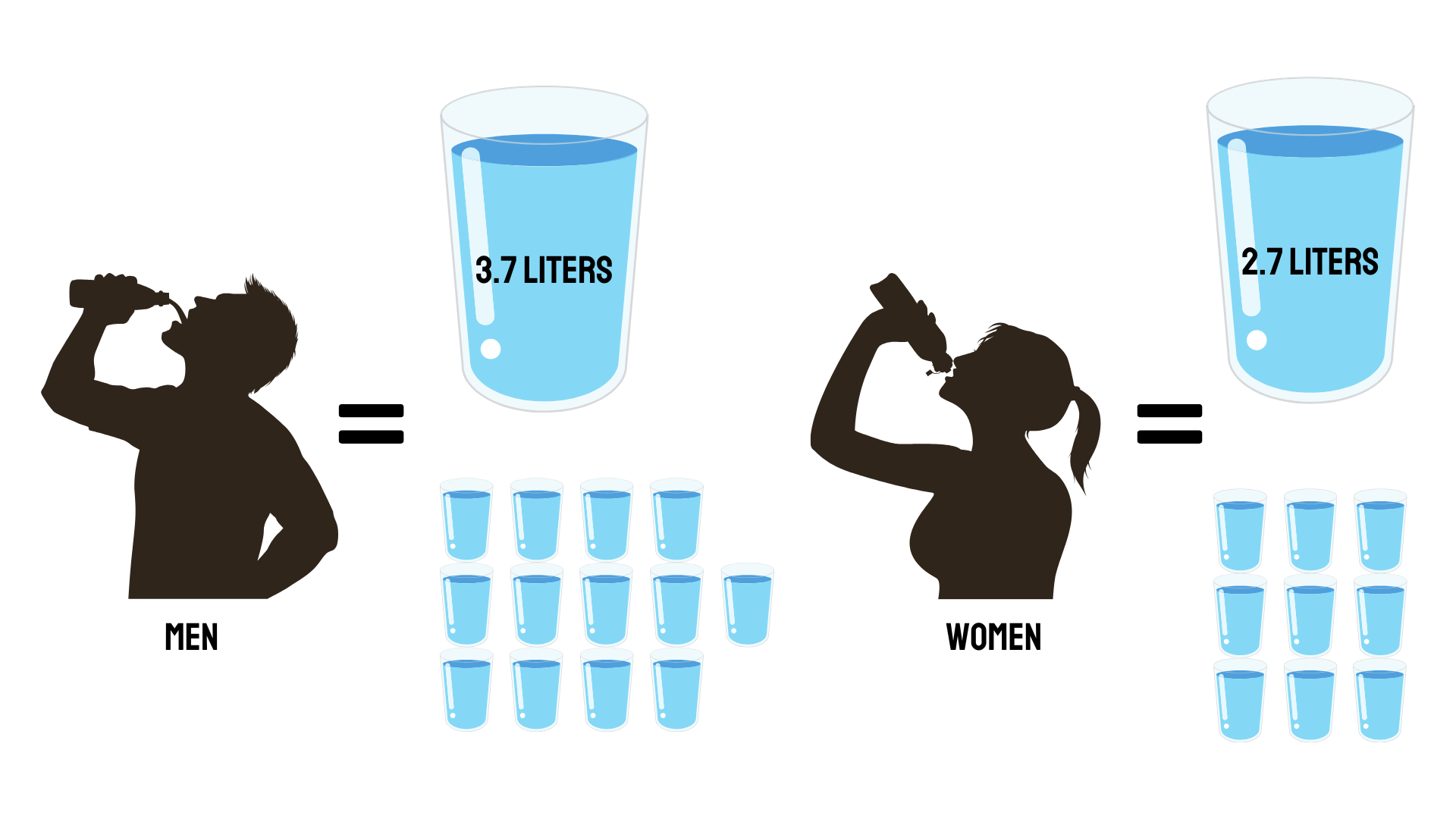
The National Academies of Sciences recommends that men consume about 3.7 liters of water and women about 2.7 liters of fluid daily. Approximately 20% of this fluid intake comes from food, guiding men to aim for about 13 cups extra water and women for about 9 cups of liquid daily.
Beverages like sparkling water can be counted toward these daily water intake amounts, making them a viable alternative to regular water or sugary sodas.
The Hidden Factors That Carbonated Water Make or Break Your Hydration Levels
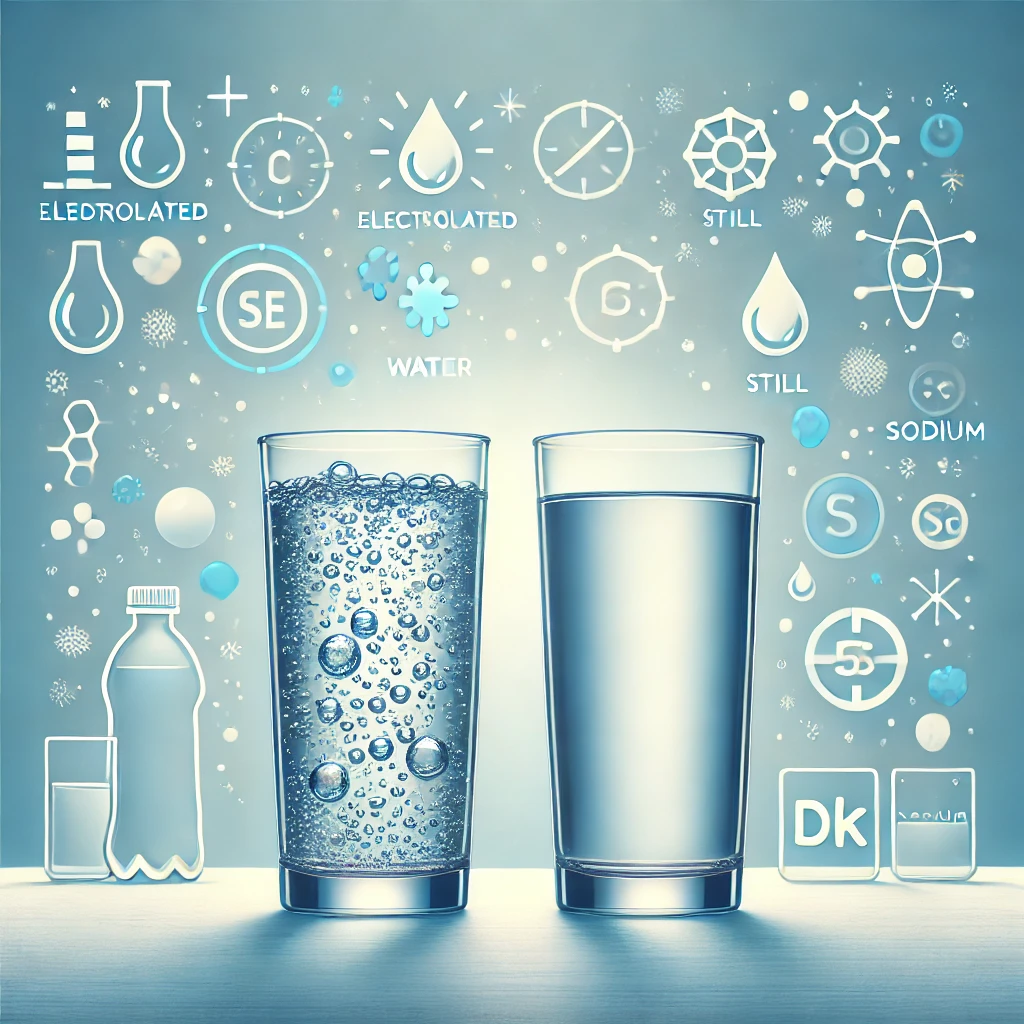
Carbonated water shares the same base ingredient as still water, allowing it to hydrate the body effectively. However, individuals may experience varied responses due to the effects of carbonation. Some people might drink extra water with more bubbly drinks due to the appeal of carbon dioxide gas, while others feel full faster and drink less.
Hydration can also be enhanced by drinks containing sugar, electrolytes, or nutrients, promoting more excellent fluid retention than plain water. Additionally, beverages with sodium help retain more water in the body, offering a slight edge in hydration efficiency.
Still Water or Carbonated Water: The Hydration Answer You Need!
When it comes to hydration, both carbonated (sparkling) water and still water are effective choices. Studies confirm that there is no significant difference in their ability to hydrate the body. The Beverage Hydration Index (BHI), a tool designed to measure the hydrating potential of various beverages, reveals that sparkling and still water provide similar beverage hydration index results.
The main distinction between the two lies in the carbon dioxide bubbles that characterize sparkling water. Despite this difference, their shared base ingredient—water—ensures they are equally effective for hydration.
Hydration with a Fizz: What Makes Sparkling Water Stand Out
Sparkling water provides the same hydration benefits as cold still water, with its carbon dioxide bubbles having no impact on hydration effectiveness. Many people enjoy the cold, bubbly texture, which can encourage greater fluid intake and support daily hydration needs.
However, the carbonation of bubbles may cause bloating for some, especially during physical activity, making the drink it less ideal for quick rehydration. Despite this, sparkling water remains a refreshing and effective option for staying hydrated.
How Still Water Stands Out for Rapid Hydration
Still water effectively hydrates the body, matching sparkling water in replacing fluids and supporting electrolyte balance. It’s a straightforward and reliable option for maintaining hydration without the complexities of carbonation.
Unlike sparkling water, still water absorbs more quickly and avoids the risk of dehydration and bloating. Its simplicity makes it ideal for rapid rehydration when the body needs fluids the most.
Nutritional Facts of Sparkling Water
Plain sparkling water shares the hydrating properties of regular water, making it just as effective for daily water intake. It's nutritionally similar to its still counterpart, milk, offering no calories, sugar, or unhealthy additives, though there may be a slight sodium addition for taste. Checking labels is crucial, as some varieties may include fruit juice or artificial sweeteners.
Some individuals may experience gastrointestinal discomfort from excessive carbonation, but generally, plain sparkling water is safe for regular consumption and doesn't harm bone health. It's a healthy alternative to sugary sodas, providing a bubbly drink experience without compromising your health.
Mineral Content of Sparkling Water
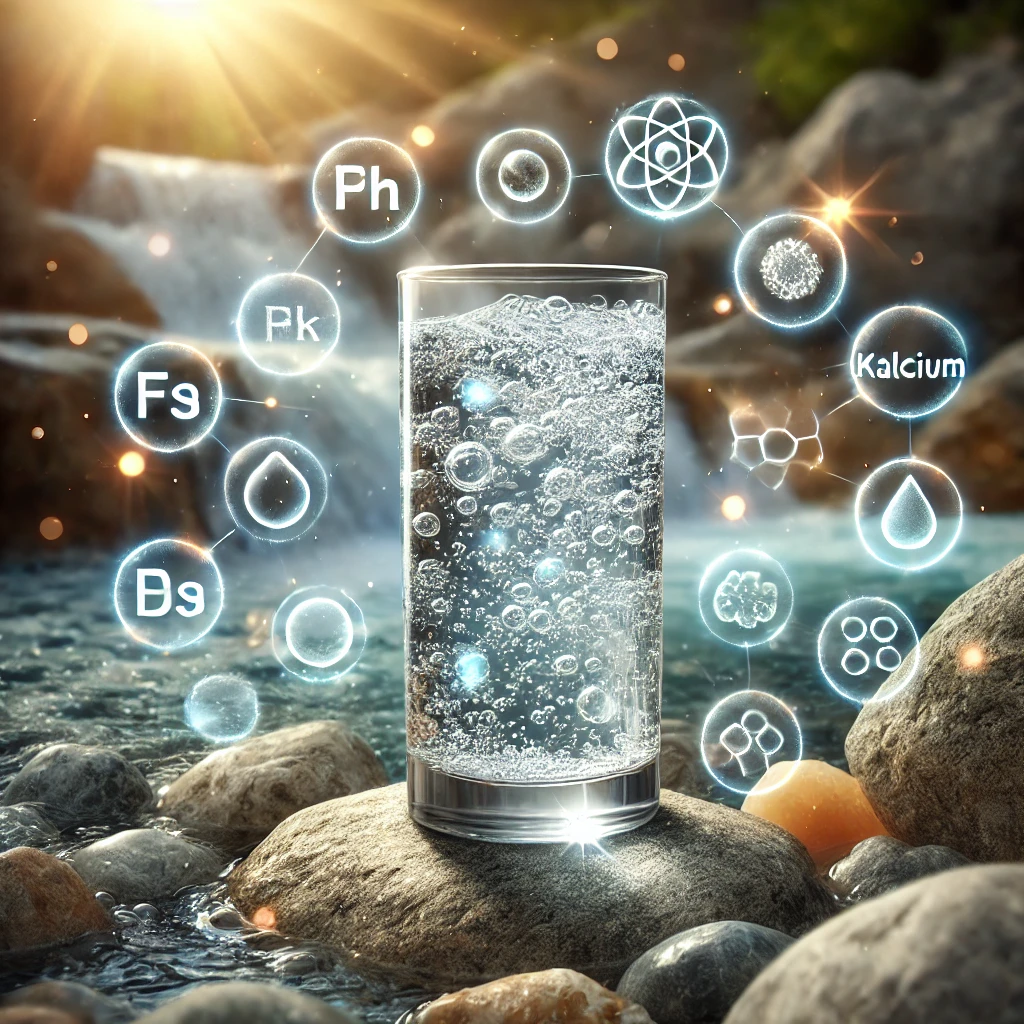
Sparkling water tends to be more acidic than still water, affecting its taste and interaction with minerals.
Mineral water, especially in its sparkling form, contains minerals like calcium and magnesium, which benefit bone and muscle health. The specific mineral content can vary widely depending on the mineral spring or source, resulting in distinct taste profiles.
Additional minerals such as potassium bicarbonate and potassium sulfate might be added to enhance the drink’s flavor and nutritional value. These variations underline the importance of considering the source enough water and composition of your chosen beverage.
Health Implications of Minerals in Sparkling Water
In sparkling water, minerals like calcium and magnesium support bone and muscle health, and bicarbonates can help maintain the body's pH balance. Club soda, more water enriched with potassium bicarbonate and potassium sulfate, provides trace minerals not found in plain seltzer water.
However, it contributes more water to sodium intake, with roughly 75 milligrams per 12-ounce can.
The varying mineral content, based in most cases on the origin of the water, means potential health benefits also differ, along with taste. For those concerned with sodium intake, it's advisable to monitor the consumption of club soda as part of your daily beverage hydration strategy.
Differences in Composition
Carbonated water, created by adding water and carbon dioxide together, is distinct from still water due to its bubbles. Sparkling water can vary in mineral content, with varieties like tonic water, club soda, and seltzer being processed differently. Sparkling water consists of 99.9% water by weight, whereas soda is only about 89.4% water, making it more hydrating.
Flavored sparkling waters might impact hydration if carbonation leads to a feeling of fullness, prompting lower consumption. Unlike soda, which often contains non-hydrating sugars, plain carbonated water is more focused on hydration, though drinks with added electrolytes or nutrients can offer enhanced hydration benefits.
Hydration Comparison
Studies indicate negligible differences in the hydrating effects of still and carbonated water, categorizing in one study them as equally hydrating. A recent study by The Beverage Hydration Index (BHI) reinforces this, showing that carbonated water is as effective in fluid retention as still water. Carbonation minimally impacts digestion but might slightly slow digestive transit.
Though plain carbonated water and still water hydrate effectively, drinks with added electrolytes or nutrients can offer superior hydration.
Individuals' preferences for carbonation impact overall water intake, as some who drink extra water or more due to bubbles, while others might feel full or bloated.
Health Benefits of Regular Sparkling Water Consumption
Sparkling water is as effective as plain water in hydrating the body, making it a reliable choice for maintaining hydration. The carbonation in sparkling water promotes the production of gastric juices, aiding digestion and helping alleviate symptoms like indigestion and constipation.
Additionally, it serves as a healthier alternative to sugary sodas, encouraging better hydration habits without adding calories.
Drinking sparkling water supports skin health by maintaining hydration, contributing to skin flexibility and moisture levels. Many people feel they are more inclined to drink sparkling water due to its fizz, which can help them maintain their daily water intake goals.
This shift from sugary sodas to carbonated water enhances hydration and boosts dietary habits.
Digestive Benefits
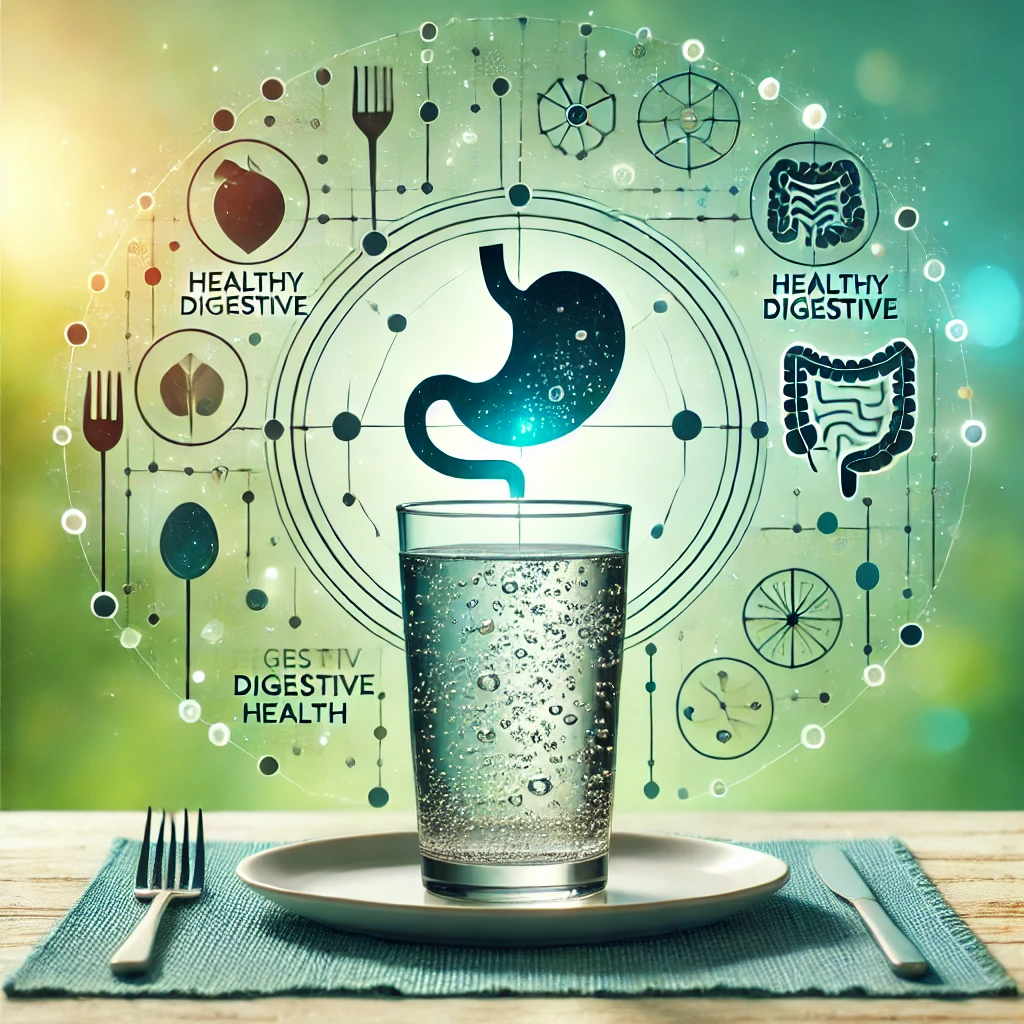
Carbonated water can improve swallowing ability, especially among older adults, and provide digestive relief. Some studies show it can help alleviate constipation symptoms, reduce stomach pain, and improve bowel movements. Sparkling water can also make you feel fuller after meals, aiding in weight management without discomfort.
The carbon dioxide in sparkling water influences the digestive process by prolonging satiety, potentially preventing overeating.
Although it takes longer for the body to process sparkling water in the stomach and small intestine, the hydration benefits remain on par with those of regular or bottled water. This makes sparkling water an excellent option for digestive and hydration support.
Caloric Considerations
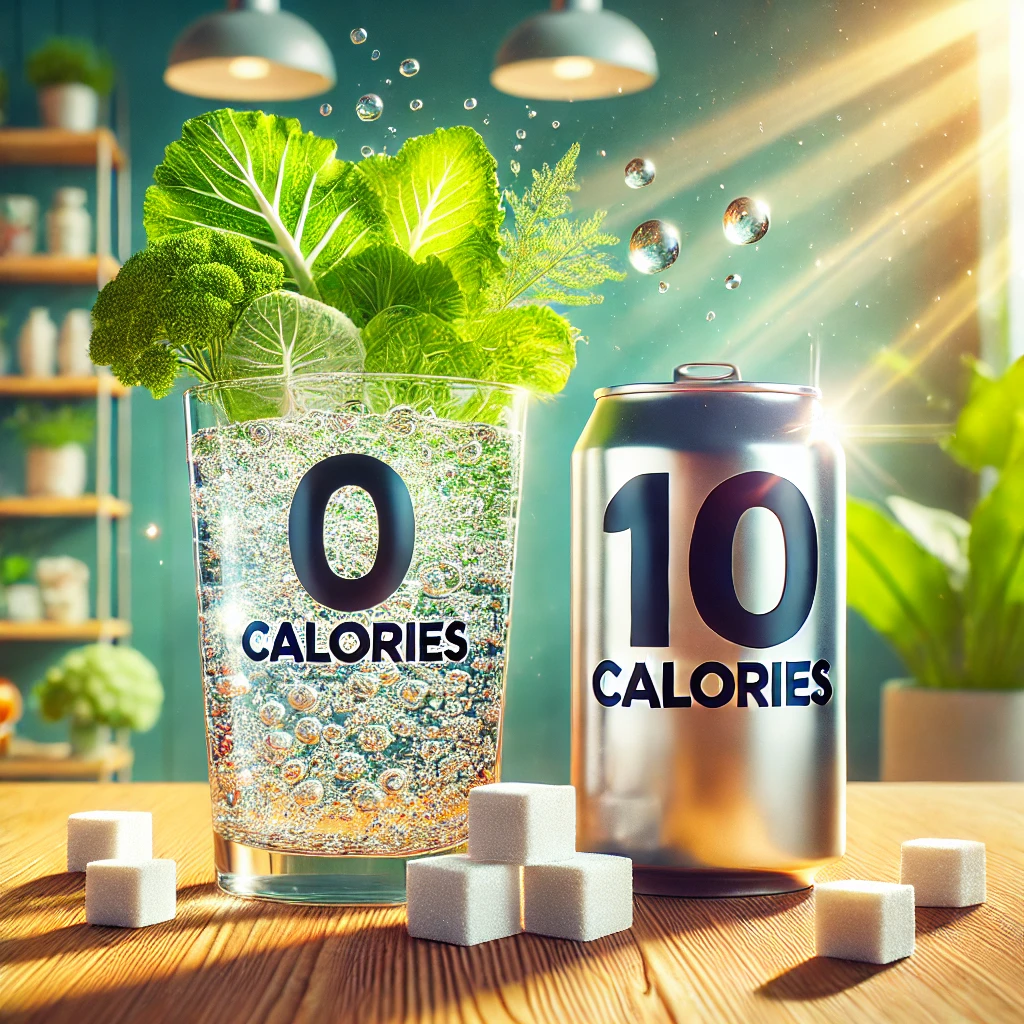
Sparkling water is a calorie-free beverage, a great alternative to sugary soda, fruit juice, and other high-calorie drinks. Unlike tonic water, which has around 120 calories from added sugars in a 12-oz can, plain sparkling water is calorie—and sugar-free.
Some flavored carbonated drinks may contain added sugars, so checking labels is essential.
Switching to sparkling water from sugary or diet soft drinks can significantly aid nutrition and weight management due to the absence of calories and sugar. Pure sparkling and non-carbonated water together provide excellent hydration options without impacting calorie intake.
For those seeking a healthy, bubbly drink, sparkling water offers numerous benefits without the caloric drawbacks of other beverages.
Common Myths About Sparkling Water
Sparkling water, also known as carbonated water, is often surrounded by misconceptions regarding its health effects. Let's address some of these myths:
Myth 1: Sparkling Water Causes Dehydration
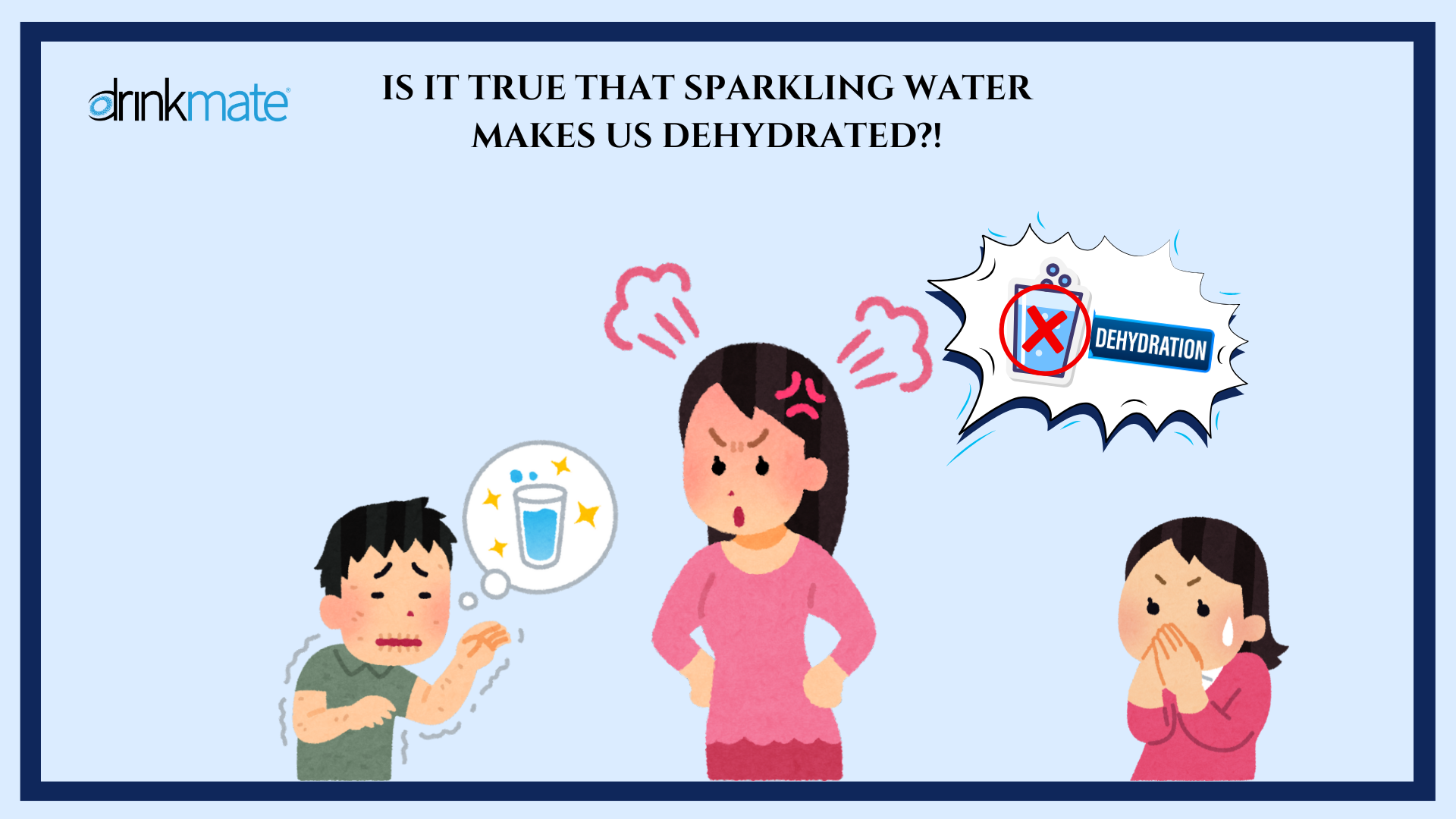
Some believe that sparkling water's carbonation can lead to dehydration. However, this is not true. Sparkling water hydrates the body just as effectively as still water, and the presence of carbonated dioxide in tap water also does not hinder the body's ability to absorb fluids.
Myth 2: Sparkling Water Erodes Tooth Enamel
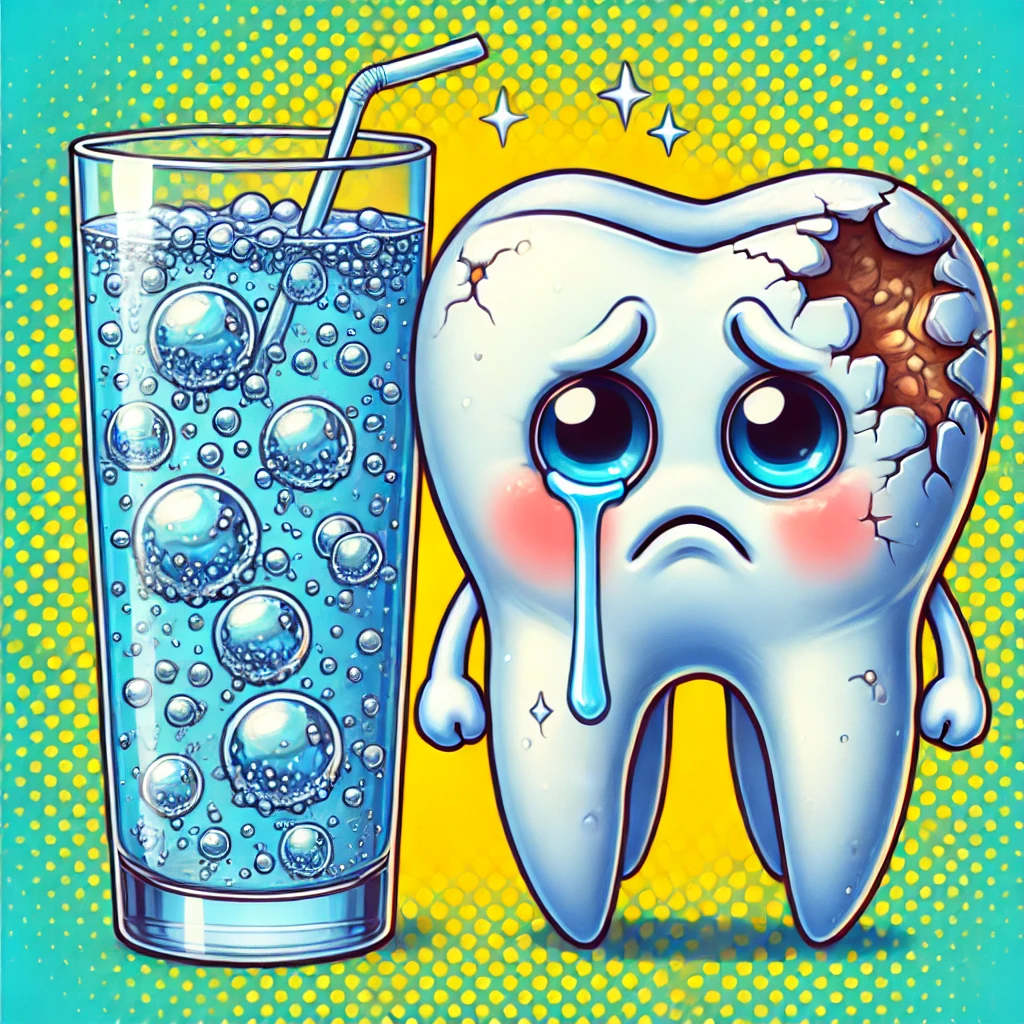
Concerns about sparkling water's acidity and potential to erode tooth enamel have been raised. While carbonic acid makes sparkling water slightly more acidic than still water, its effect on tooth enamel is minimal. Research indicates that plain sparkling water poses a far lower risk to dental health than sugary soft drinks.
However, flavored sparkling waters containing citric acid or sugar may increase the risk of enamel erosion and cavities. It's advisable to check ingredient labels and maintain good oral hygiene.
Myth 3: Sparkling Water Reduces Bone Density
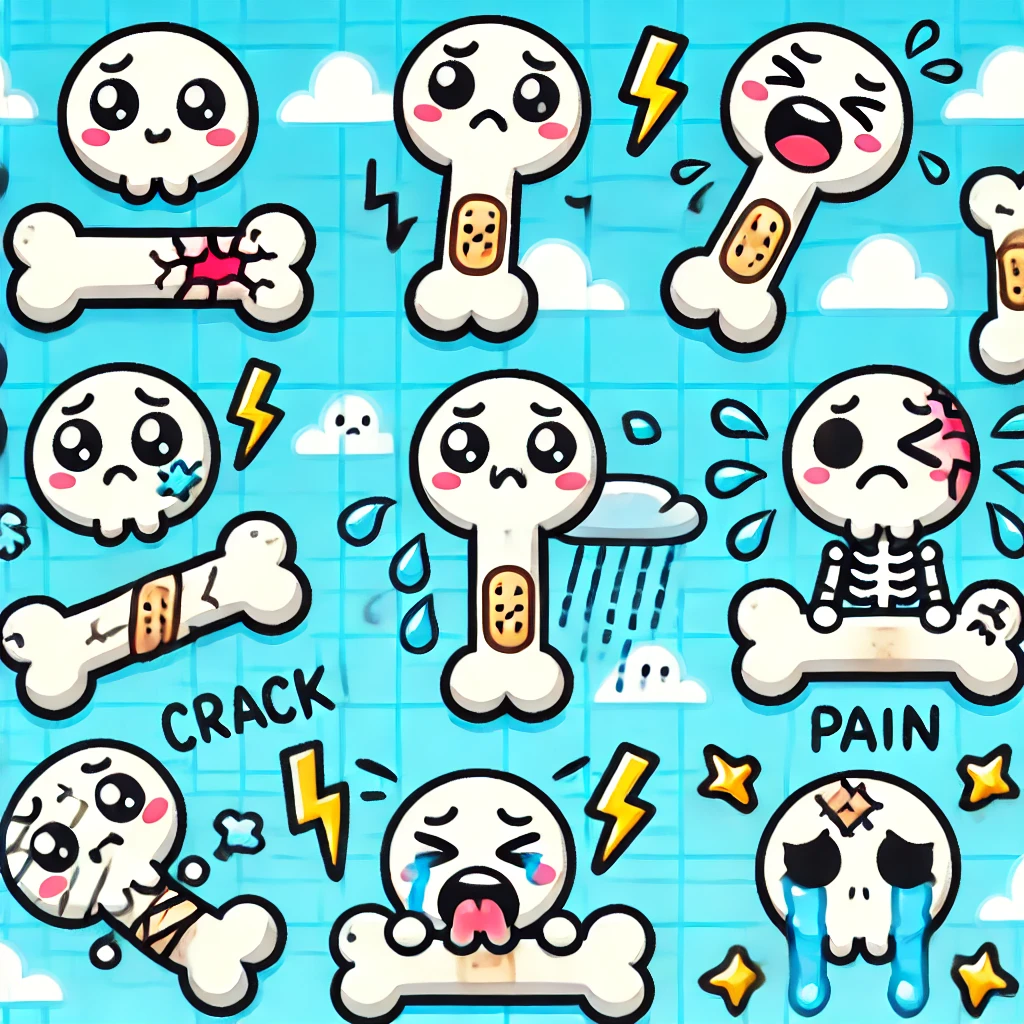
A common misconception is that sparkling carbonated water can decrease bone density. Scientific studies have debunked this myth. Research has found no link between the consumption of plain carbonated water and reduced bone mineral density.
The concern primarily arises with cola beverages, which contain phosphoric acid and have been associated with lower bone density in women. In contrast, plain sparkling water does not adversely affect bone health.
Myth 4: Sparkling Water Causes Digestive Issues
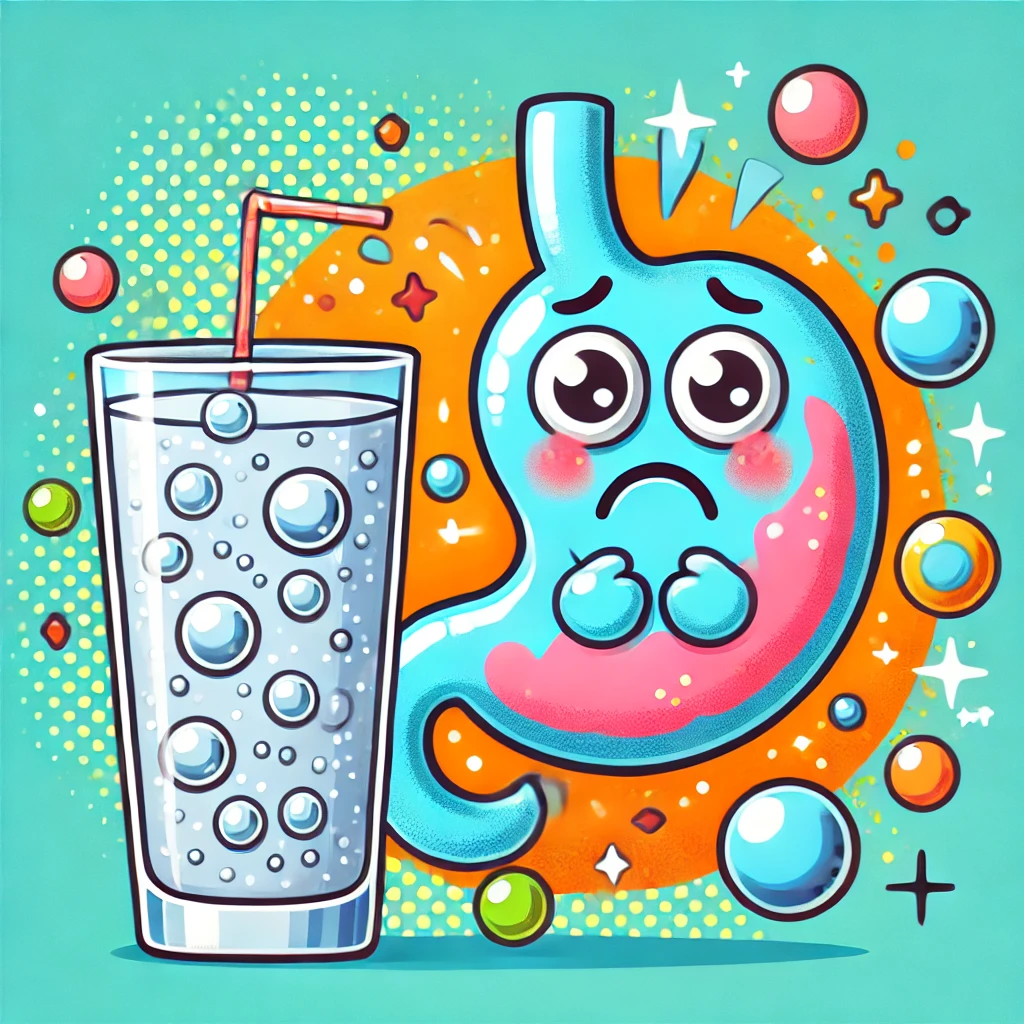
Some individuals worry that the carbonation in sparkling water may cause digestive problems such as bloating or gas. While carbonation in some bottles of tap water can temporarily cause a feeling of fullness, moderate consumption of sparkling water does not typically lead to significant digestive discomfort. In fact, the study concluded that sparkling water can aid digestion and alleviate constipation for some people.
Myth 5: Sparkling Water Is Less Hydrating Than Still Water
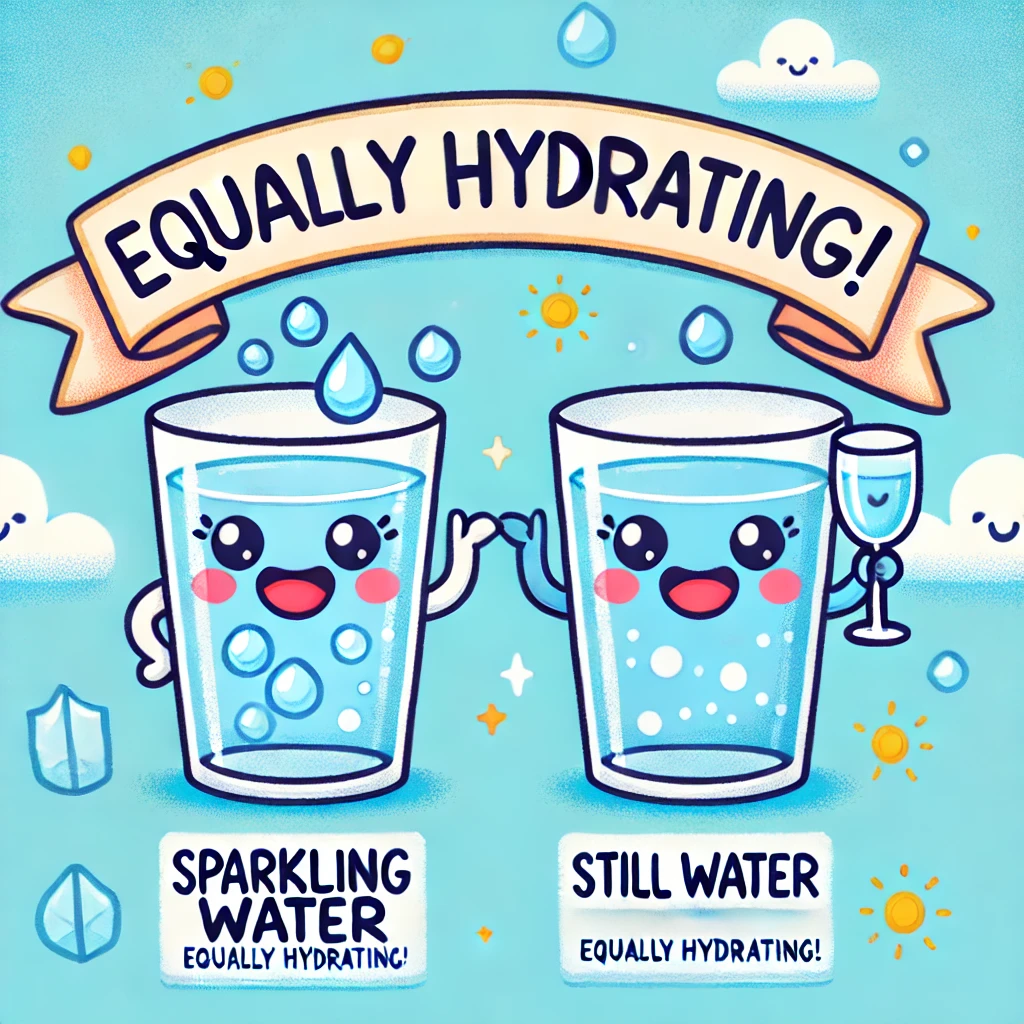
There is a belief that with carbon dioxide added, sparkling water doesn't hydrate as much water per body weight as well as still water. However, studies have shown that both are equally effective in maintaining hydration. The presence of carbonation does not significantly affect the body's absorption of water.
Say Goodbye to Ordinary Water—Drinkmate SG Brings the Sparkle!
Why settle for plain when you can elevate your hydration game? Sparkling water isn’t just a safe and effective choice—it’s a fun and versatile way to stay refreshed! It hydrates just as effectively as still water supports your health with minimal impact on your teeth, and keeps your bones strong. Plus, it’s free from the drawbacks of sugary sodas, making it the smarter choice for a healthier you.
Ready to transform your beverages? Drinkmate SG has the ultimate solution. With the Drinkmate OmniFizz, you can turn any drink—water, juice, tea, or even cocktails—into a fizzy, flavorful masterpiece. No more boring hydration or wasteful single-use plastic bottles.
It’s time to hydrate smarter, live sustainably, and enjoy every sip. Take the first step toward a sparkling lifestyle—explore Drinkmate SG now and revolutionize your hydration experience!
